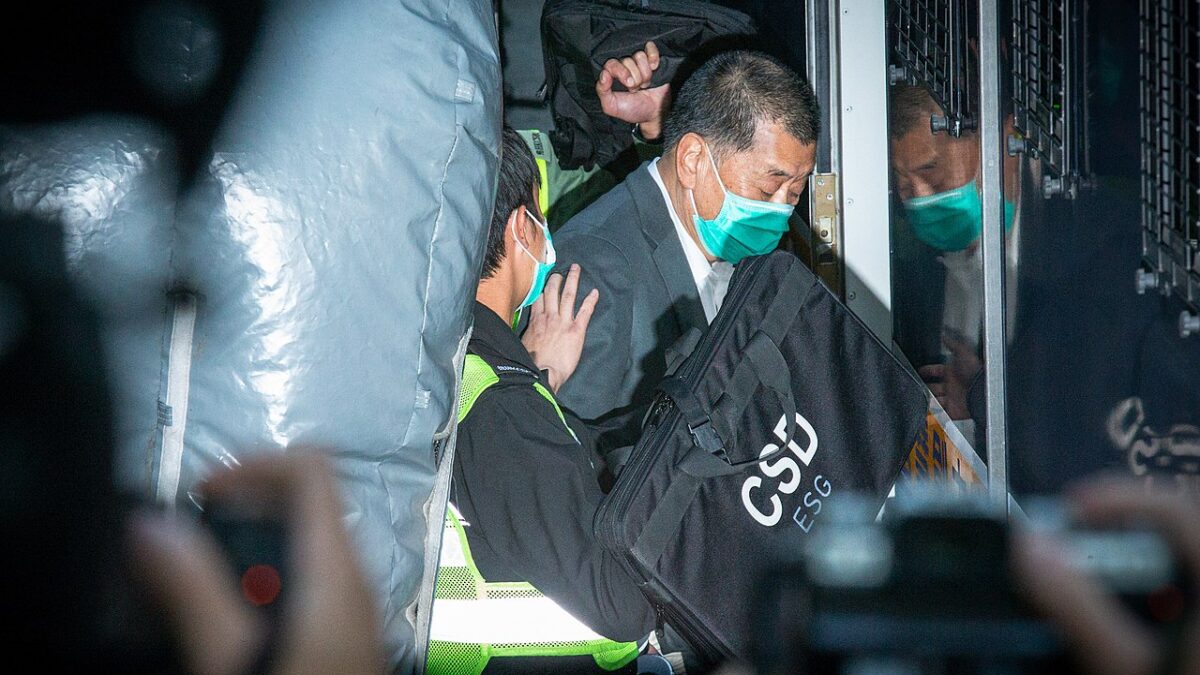
Claas Relotius, who was once named CNN Journalist of the Year, resigned from his job as a writer and editor at German news magazine Der Spiegel after confessing to purveying fake news on a “grand scale.”
Relotius, 33, first came under internal suspicion at Der Spiegel after the publication of “Hunter’s border,” an article about an American vigilante group on the U.S.-Mexico border. The article’s co-author, Juan Moreno, grew suspicious and collected evidence against Relotius during a subsequent trip to America on another story.
Moreno found that two sources ostensibly quoted in the story never spoke to Relotius. In addition, Relotius lied about seeing a sign declaring “Mexicans keep out.” According to Der Spiegel: “Claas Relotius committed his deception intentionally, methodically and with criminal intent. For example, he included individuals in his stories who he had never met or spoken to, telling their stories or quoting them. Instead, he would reveal, he based the depictions on other media or video recordings. By doing so, he created composite characters of people who actually did exist but whose stories Relotius had fabricated. He also made up dialogue and quotes.”
At least 14 of 60 articles authored by Relotius for Der Spiegel are at least partly fabricated.
On Monday, Michele Anderson and Jake Krohn published “Der Spiegel journalist messed with the wrong small town,” an English-language debunking of “Where they pray for Trump on Sundays,” a Relotius hit piece about their town of Fergus Falls, Minnesota.
The falsehoods in the article begin with his claim that the town is near “a dark forest that looks like dragons live in it” (it’s on a prairie) and that visitors are greeted by a sign reading: “Welcome to Fergus Falls, home of d-mn good folks” (a photo shows the sign says nothing about the folks).
Relotius went on to fabricate a biography for city administrator Andrew Bremseth, who supposedly “would like to marry soon …but he has not yet been in a serious relationship with a woman. He has also never been to the ocean.” Anderson and Krone published a photograph of Bremseth and his longtime female companion — at the ocean.
The article includes a profile of 57-year-old Neil Becker, who supposedly works at a coal-fired power plant. The photo Relotius used is of Doug Becker, who works for UPS and previously ran a fitness center.
Anderson and Krone also dismantle a narrative spun about Maria Rodriguez, who, in total fairness to Relotius, at least exists: “Relotius weaves together the story of Maria, restaurateur turned Trump supporter whose treatment for kidney disease becomes increasingly expensive under Obamacare, and that of her 15-year old son Israel, who faces prejudice at the hands of his Fergus Falls classmates.”
In reality, Maria is a waitress who has never had a kidney disease and never spoke to Relotius. Her son, Pablo, is in college; Israel is a waiter at the restaurant, which is owned by Maria’s sister-in-law.
Relotius also recounts a number of events that never occurred, including an an iPad for Beginners class at City Hall, a Super Bowl viewing at Union Pizza, a “Western evening” (allegedly attended by Maria and the fictional Neil), and a high school trip to New York.
Although these two most-publicized stories purport to expose how immigrants and minority families suffer in Trump’s America, the fabrications occasionally further a larger anti-American narrative. Relotius invented a phone interview with Colin Kaepernick’s parents. Another fraudulent tale involved a Yemeni prisoner at Guantanamo Bay.
Earlier this month, he won Germany’s Reporter of the Year award for a largely fabricated story about a young Syrian boy. Other tainted articles that won or were nominated for awards involved Iraqi children kidnapped by ISIS and Syrian orphans forced into a Turkish sweatshop.
Relotius won his award from CNN in 2014 for a story titled “Murderers as Carers,” about U.S. prison inmates suffering from dementia. The piece was published in Switzerland’s Reportagen. A “CNN Insider” told The Wrap the award was “sponsored by CNN but judged by an independent jury.”
It is currently unknown whether the story earning the CNN award was fabricated. Der Spiegel has warned that other publications may have published fake news from Relotius. Prior to joining the magazine, Relotius had written not only for Reportagen, but a raft of outlets including: Cicero, the Neue Zürcher Zeitung am Sonntag, the Financial Times Deutschland, Die Tageszeitung, Die Welt, Süddeutsche Zeitung Magazin, Weltwoche, Zeit Online, and the Frankfurter Allgemeine Sonntagszeitung.
Der Spiegel proclaimed the scandal as a “low point” in the magazine’s 70-year history. Germany’s journalists union declared the matter “the biggest fraud scandal in journalism since the Hitler diaries,” published by Stern magazine in 1983, but later shown to be forgeries.
The nature of the fraud in this case, however, seems more reminiscent of those that seem to plague American outlets every few years. The composite characters Relotius created recall the case of Janet Cooke, who won a Pulitzer for her Washington Post story about a fictional eight-year-old heroin addict. The dozens of equally dramatic — and equally fake — stories from Stephen Glass published by The New Republic also come to mind.
Modern journalism is a profession that likes to think of itself as living by the credo: “If your mother says she loves you, check it out.” All too often, it neglects equally apt dictate: “If it seems too good to be true, it probably is.” The award-winning story about the Syrian boy was lauded by jurors for its “lightness, poetry and relevance.” Maybe those qualities should have been red flags.









